Escaping the new Cold War: Fostering understanding between China and the West
Lance Gore, senior research fellow of the East Asian Institute, warns that a new cold war awaits China and the US if they continue to talk over each other. How can the two giants see each other in a better light? How can China improve its rule of law and governance practices?
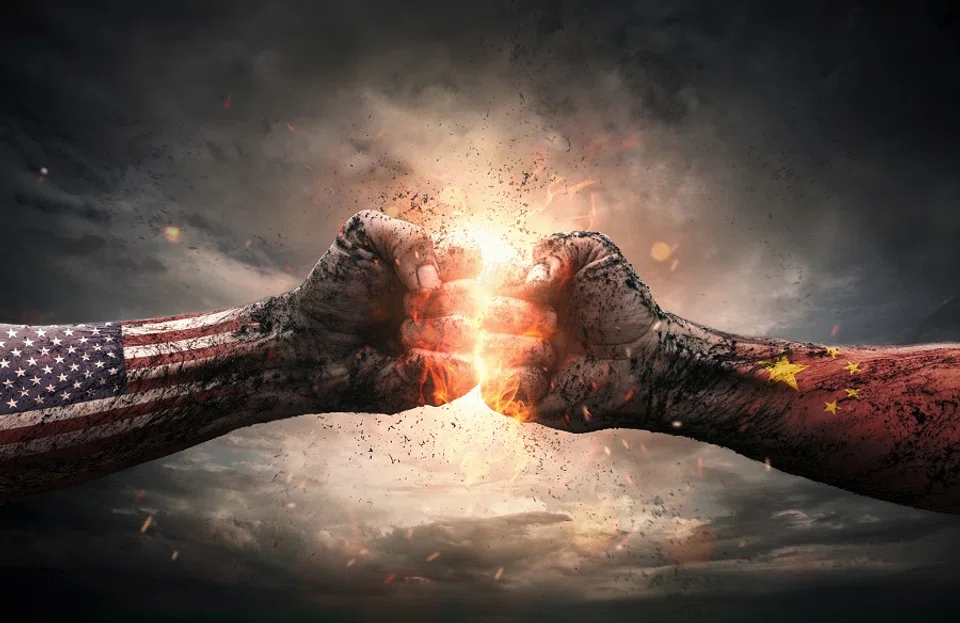
The Thucydides Trap refers to the inevitability of war between an emerging and the incumbent superpowers. In an era of nuclear warfare in a globalised world, a war between superpowers will be devastating to both sides and the entire world. Since there will not be a victor, the possibility of war is remote.
However, the prospect of a new Cold War is not so far away. The US-Soviet Cold War was rare as a period of peace in modern history, and has been hailed by the Soviets as "peaceful competition". In today's interdependent world, what should be feared is not so much the Thucydides Trap but a new Cold War centred on ideology.
Differing ideas breed distrust
Unlike the previous Cold War, which revolved around global revolution, the new Cold War is based on outdated ideas. Following the collapse of the former Soviet Union and the Eastern Bloc, Western liberalism gained moral high ground. Market capitalism, democracy, freedom, human rights, the rule of law, and a pluralist society, among others, have been considered the most humane and dynamic institutions. These constitute the basis of Western identity and positioning to promote worldwide democracy, freedom and human rights. In contrast, centralisation of power and authoritarianism are considered evil and must be opposed.
However, the two Gulf Wars and several economic crises have rocked the confidence of the West and shattered its image. Beneath the rhetoric lie rich-poor disparity, social injustice, money politics, party turmoil, social unrest and government paralysis, which represent the views of many Chinese people regarding democracies. Steeped in classical economics and free market competition, Western politics encourages the pursuit of personal interests as contribution to society. Democracy is hence a political marketplace where votes and lobbying underpin the integration or trade-offs of the various interests of social strata and groups.

The flaws of this logic were exposed in the 2008 Subprime Mortgage Crisis and the polarisation caused by unequal wealth distribution, resulting in the emergence of populism and extremism in recent years. Although the failure of the Washington Consensus has provided China with unprecedented opportunities, China's view of itself is littered with blind spots. Prejudiced, both China and the US alienate each other, with the West apprehensive of the China threat and China wary of colour revolutions. A new Cold War trap looms in a time of caginess and mutual distrust.
China believes that its political system can consolidate the necessary resources for significant accomplishments. Although the system restricts personal freedom and interests, the country has gone from strength to strength. It possesses the resources to better serve its people, and the people have gained much more in a shorter time. The government effectively and efficiently deals with various risks and changes, and its leaders have gained experience and capabilities in the process. With the country on the rise, the people are riding high on confidence and achievement. After the 2008 Subprime Mortgage Crisis, China has emerged with the Confidence Doctrine: confidence in its chosen path, political system, guiding theories and culture.
However, the articulation of the Confidence Doctrine is basically regarded as the monologue of a superpower in the international arena because the West dominates international discourse. In addition, exuding confidence can be taken as an endeavour to conceal the obvious and inherent shortcomings in the software and hardware of the Chinese system. Western discourse can easily connect these shortcomings to create an image of malevolence. Inherent in this image are prejudices and substantive issues that must be taken seriously.
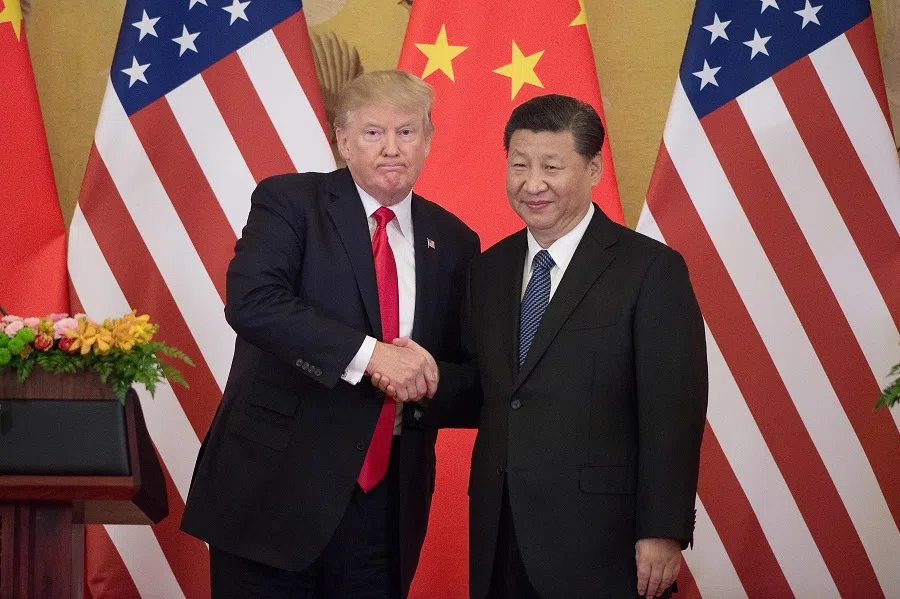
Chinese gentleman values and governance
Let us first examine Western prejudices. For several millennia, China has had a centralised, authoritarian system. China's benevolence, cultivated by civilisational attributes and cultural reasons, is ignored by the West. Instead of its benevolence, they focus on how China's systems, rules and regulations are used to punish wrongdoings.
China's centralised system intimidates the West. However, fears of its malevolence can be allayed by considering the country's "software". Consistent throughout Chinese history is the Confucian dogma that constitutes the essence and content of this software. Confucius advocated the five virtues of benevolence, righteousness, propriety, wisdom, and integrity (仁义礼智信), while Mencius taught that "the people come before the state, and the state is above the ruler" (民为大,社稷次之,君为轻). Sun Yat-sen said that "the world belongs to all" (天下为公), Mao Zedong emphasised "serving the people" (为人民服务), Jiang Zemin articulated the "Three Represents" (三个代表: economic production, cultural development and political consensus), Hu Jintao stressed "governing for the people" (执政为民), and Xi Jinping underlined "people's nature" (人民性) in governance.
In this tradition, depending on circumstances, officials may have the authority to indiscriminately kill, punish or intimidate the people, yet it can also be yielding and submissive in wooing them.
Since ancient times, Chinese officials are familiar with the belief that they should "sell sweet potatoes at home if they fail to serve the people" (当官不为民做主,不如回家卖红薯). The people are dependent on the officials, like a child reliant on the parents. Likewise, the officials are also dependent on the support of the people. "The emperor wields absolute authority over life and death of his subjects, the officials and the people, who must honour their duty and absolute obedience, like sons to their father" (君要臣死,臣不得不死。父要子亡,子不得不亡). The fundamental basis for this authority is the emperor's promise of duty and commitment to his subjects.
Morally, it is only right that those who wield absolute authority yet betray their duty and commitment deserve to be overthrown. Xi Jinping's emphasis that "the biggest political power lies in winning people's hearts" (民心是最大的政治) is the essence of the Chinese political tradition. Public opinions have become the checks and balances as the ruler hopes to win the people's hearts for the legitimacy to govern. Relative to Western politicians who indulge in personal interests, China's leaders often possess greater self-discipline. This tradition seeks to "cultivate oneself, bring order to one's family, govern the country, and bring peace and order to the world" (修身,齐家,治国,平天下), an ancient maxim often referenced by Lee Kuan Yew.
The complex relationship between the country and society created by this tradition of politics and culture can never be simply summed up by the Western definition of autocracy. In this tradition, depending on circumstances, officials may have the authority to indiscriminately kill, punish or intimidate the people, yet it can also be yielding and submissive in wooing them. These two seemingly opposing behaviours are not inconsistent within Chinese culture.
However, Western liberal discourse has been unable to reconcile the malevolence of the Chinese system with China's unprecedented economic development, and what the West considers its core values of freedom, human rights, rule of law and democracy. This has created a cognitive dissonance in the West.
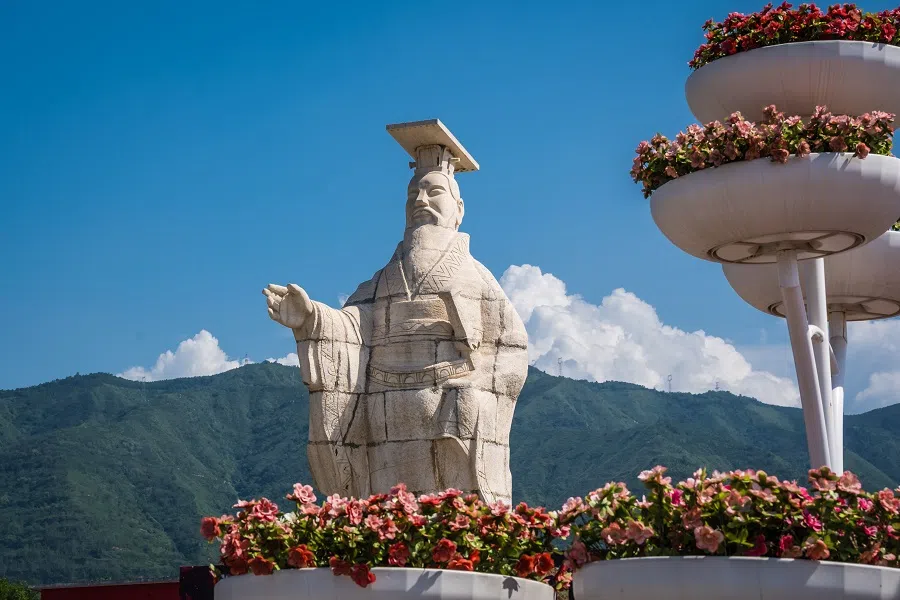
Accountability amidst benevolence
While Western discourse is adept at explaining the malevolence of the Chinese system, it is unable to explain its achievements. The Chinese often accuse the West of collectively turning a blind eye to China's achievements, adding that its assessments reek of hypocrisy, double standards and racial discrimination. This, however, is not totally correct because of the flaws in Western discourse and the deficiency in vocabulary corresponding to the reality in China.
Still, the substantive problems of the Chinese system cannot be glossed over. Since the country's system, rules and regulations are controlled by the elites, all bets are off if these elites go rogue. China's governance has heavily relied upon benevolent emperors and upright officials. To the modern Chinese, democracy still conjures the age-old image of "deciding for the people" (为民做主). China has neither a continuous supply of benevolent rulers and upright officials nor a system that prevents them from going rogue. Reforms in China's supervisory system for investigating possible wrongdoing in recent years have dealt with corruption at the lower rungs but not upper echelons.
In ancient China, there was a special agency called the Censorate (谏官制度) where officials or censors would remonstrate with or admonish the emperors for any wrongdoing or malfeasance. Without the Censorate to discharge its duties without fear of death or reprisals, the cultural tradition of ensuring benevolent rule is lost. Unilateral emphasis on absolute obedience and loyalty to the one and only ruler is clearly not an expression of self-confidence.
A non-partisan democracy featuring a Censorate system will surely be a refreshing change. It will wipe out Western superiority because combative democracy, which has long been the pride of the West, will pale in comparison.
The Censorate system needs to evolve because today in China there are insufficient platforms for political discourse, and leaders at all levels must face up to honest feedback. While hundreds of civil and military officials attended the morning imperial court sessions presided by the emperor in the past, the 25-member Politburo of the Communist Party of China currently only meets once a month. Where power is overly centralised, the leaders could easily be misled, readily lose touch with reality and make disruptive and strategic missteps, as they only hear good news and flattery. The best of intentions and policies may be distorted down the chain of governance, resulting in absurd outcomes that further add to the notoriety of the Chinese system.
Another reason to evolve the Censorate system is to strengthen the tradition of serving the people with far greater effectiveness in current circumstances. Technocrats, experts, scholars and concerned individuals will need a legitimate platform to freely discuss the country's affairs and offer suggestions for public policies and national interests, without fear of recriminations or of offending the leaders or powerful and influential persons.
Without such a platform, the Chinese People's Political Consultative Conference is ineffective, the experts become cynics, and vile officials with corrupt morals prevail. Although significant achievements have been made in China's campaign against corruption, systemic reforms have lagged far behind. The Censorate system, tailored specifically for the check-and-balance of power in the Chinese political culture, may even earn China the right to democratic discourse.
A non-partisan democracy featuring a Censorate system will surely be a refreshing change. It will wipe out Western superiority because combative democracy, which has long been the pride of the West, will pale in comparison. There is indeed much room for improvement in the rule of law in China, including the upholding of basic human rights, safeguarding of human dignity, and preservation of diversity in civil society, of which the West is most critical.
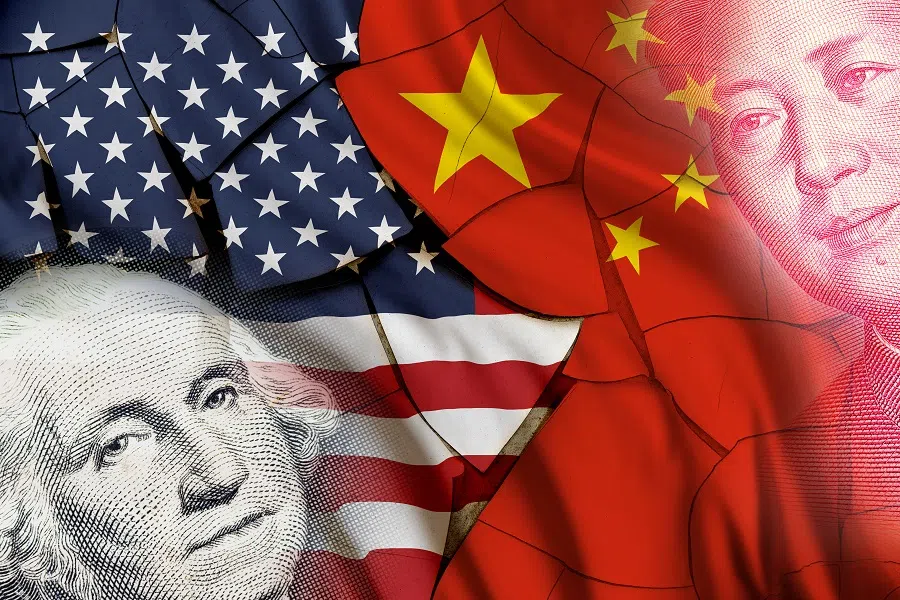
Peaceful coexistence
The traditional authoritarian system establishes its authority at the expense of human rights and dignity. This is neither compatible with modern society nor is it necessary. Cultural self-confidence is premised upon separating the wheat from the chaff, requiring China to eradicate draconian laws, severe punishment, brutal officialdom and inertial thinking that sap the human spirit. Relative to the rule of law and other more civilised means, these outdated political measures are less effective in solving modern problems.
This means that contrary to Chinese beliefs, the US does not intend to crush China and seems to have given up on attempting to change China.
As the flaws of Western democracy are exposed, China has an unprecedented opportunity to explore a more effective, humane, just, and democratic social system. China can remedy the loopholes and deficiencies of the Western system, and do better than the West in implementing similar values. In forging common values, both sides ought to progress in parallel. Such efforts, however, are rendered ineffective because the West continues to cling to its moral high ground, superiority complex and political correctness.
China should seize the initiative to learn to use mainstream discourse systems for the Chinese narrative. The danger lies in the single-minded emphasis or exaggeration of Western hostility, and the flagrant resistance to universal values. In the China-US trade war for instance, China's view is that the US is bent on obliterating China, which renders making concessions and compromises meaningless. However, after the first phase of the trade deal was reached, Robert Lighthizer, the hard-line US trade representative, spoke on US television defining the China-US trade negotiations as "trying to integrate two very different (economic) systems to the benefit of both". This means that contrary to Chinese beliefs, the US does not intend to crush China and seems to have given up on attempting to change China. Add to these interpretations the stubborn embrace of flawed systems and practices in the name of self-confidence, and the refusal to make improvements, a new Cold War will inevitably ensue.

![[Big read] Paying for pleasure: Chinese women indulge in handsome male hosts](https://cassette.sphdigital.com.sg/image/thinkchina/c2cf352c4d2ed7e9531e3525a2bd965a52dc4e85ccc026bc16515baab02389ab)

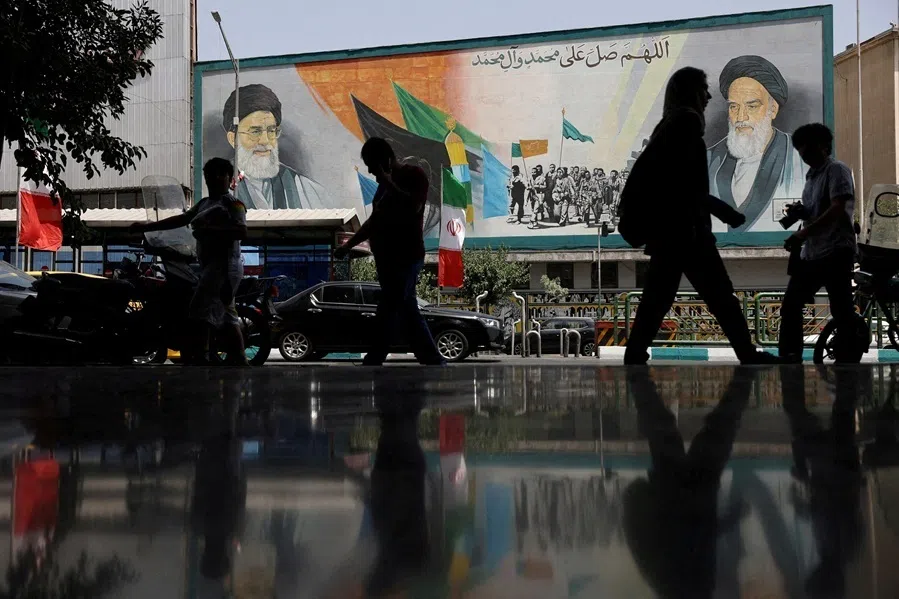
![[Big read] How UOB’s Wee Ee Cheong masters the long game](https://cassette.sphdigital.com.sg/image/thinkchina/1da0b19a41e4358790304b9f3e83f9596de84096a490ca05b36f58134ae9e8f1)
